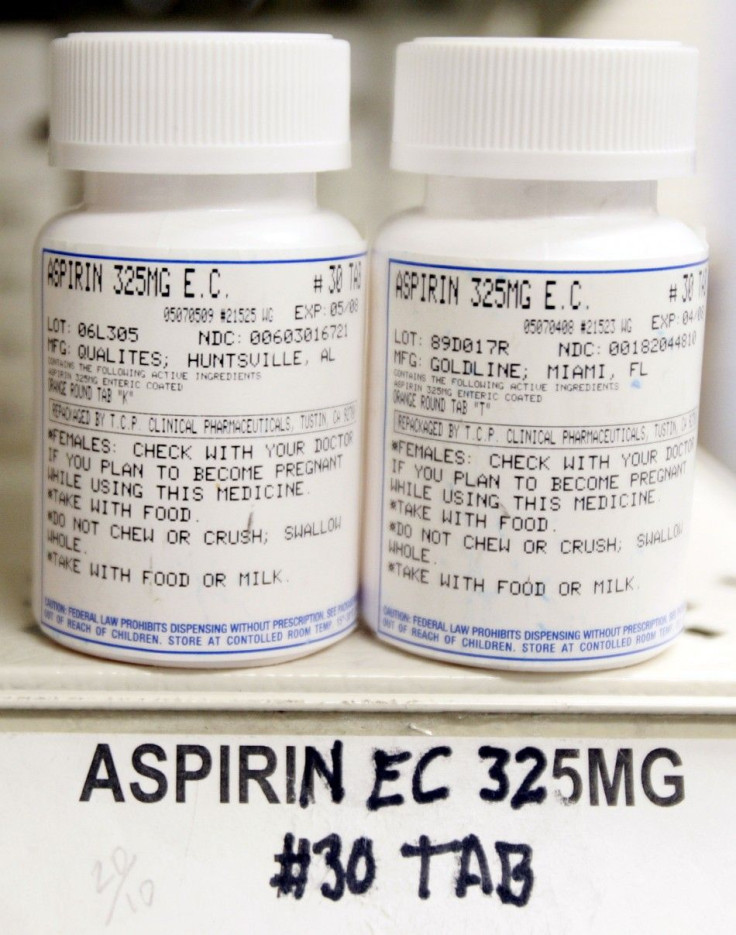Study Says Aspirin May Help Reduce Breast Cancer Growth And Spread

A new study seems to offer a promising option for breast cancer patients across the globe. A team of researchers claims that a dose of aspirin each day can help eliminate the chances of breast cancer spreading. The study has been put forward by researchers inside the oncology unit of the Kansas City Veterans Affairs Medical Center. According to the research team, aspirin can make breast cancer cells inconducive to further growth.
During the study, the team grew cancerous cells in 96 different groups. The researchers then treated half of the cancerous cells -- similar to the ones present in breast cancer – with aspirin. The team found that cells exposed to aspirin either stopped reproducing or died instantly.
For the next step, the team injected tumorous mice with 75 milligrams of aspirin. The mice were given the drug for 15 days, after which researchers observed that mice treated with aspirin had tumors half the size of the ones in the mice who were not given any treatment at all.
“We found aspirin caused these residual cancer cells to lose their self-renewal properties. Basically, they couldn’t grow or reproduce. So there are two parts here. We could give an aspirin after chemotherapy to prevent relapse and keep the pressure on, which we saw was effective in both the laboratory and the mouse model, and we could use it preventatively,” said lead researcher Dr. Sushanta Banerjee in a statement.
Previous research has shown several other benefits of aspirin in the field of medical science. Not only does it prove effective in the treatment of migraines, it also helps prevent heart-related disorders, including heart attack and stroke. The drug also helps prevent growth of colon, prostate and gastrointestinal cancer cells.
© Copyright IBTimes 2025. All rights reserved.



















